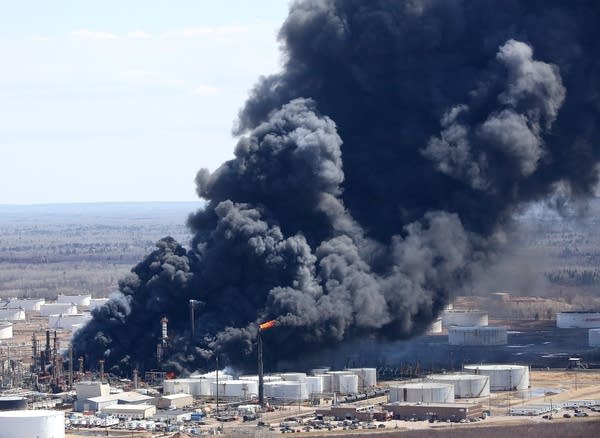Duluth leaders push for closer look at toxic refinery chemical

Thick smoke pours from the fire at the Husky Energy oil refinery in Superior, Wis., on April 26, 2018.
Bob King | Duluth News Tribune 2018
Go Deeper.
Create an account or log in to save stories.
Like this?
Thanks for liking this story! We have added it to a list of your favorite stories.


